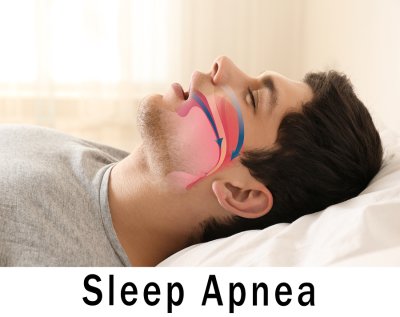What Are the Most Common Symptoms of Sleep Apnea?

Sleep apnea, a condition that causes periodic breathing pauses throughout the night, is more than just an irritant. Not only can it harm your quality of life by preventing you from getting a restful sleep every night, but it can also lead to severe health problems, including stroke and heart failure. If your symptoms give you a reason to believe that you may have sleep apnea, you can get the professional treatment you need from your dentist in Renton, WA. These are some of the warning signs you should look for.
Morning Headaches
If you’re waking up every morning with a headache, it could be your body’s way of warning you about your sleep apnea. People with sleep apnea aren’t getting sufficient amounts of oxygen while they sleep, which results in those nagging, painful headaches that sometimes last throughout the day.
Snoring
This is one of the most obvious symptoms of sleep apnea, but most people are the last ones to notice it in themselves—after all, you only snore when you’re asleep. If your partner has observed particularly loud and persistent snoring in you, you may want to have yourself checked for sleep apnea to be on the safe side.
Chronic Fatigue
When you don’t get the deep and restful sleep you need, you’ll notice one side effect right away—you’re always tired. If you find yourself feeling unusually fatigued during the day, it could be an indication that something is interfering with your sleep. Fatigue can make it unsafe for you to drive, and it can also result in trouble concentrating memory issues, and moodiness.
High Blood Pressure
When you stop breathing during the night, you stop getting as much oxygen—which means that your blood vessels have to overcompensate in order to keep getting oxygen to your brain. Over time, this can boost your blood pressure to dangerous levels. This is one of the most serious effects of sleep apnea, and it’s one of the reasons you should have the condition diagnosed and treated as soon as possible.
